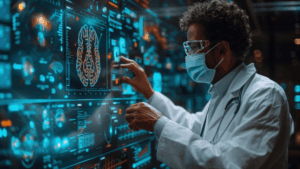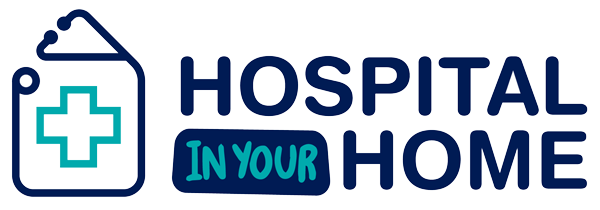
The Future of RPM: How AI and Machine Learning Are Shaping Remote Healthcare
The landscape of healthcare is undergoing a profound transformation, and at its heart lies Remote Patient Monitoring (RPM), supercharged by the revolutionary capabilities of Artificial Intelligence (AI) and Machine Learning (ML). This isn’t just about collecting data anymore; it’s about making that data intelligent, predictive, and actionable, ushering in an era of truly proactive and personalized healthcare.
Imagine a system that doesn’t just record your blood pressure, but analyzes patterns over time to predict the risk of a cardiovascular event before it even occurs. This is the power of AI and ML in RPM. Machine learning algorithms can sift through vast amounts of patient data – from vital signs and activity levels to sleep patterns and medication adherence – to identify subtle changes and emerging trends that human eyes might miss.
Key ways AI and ML are shaping the future of RPM:
- Predictive Analytics: AI-powered RPM solutions can forecast disease progression, identify patients at high risk of deterioration, and predict potential complications like heart attacks, strokes, or fluctuations in blood sugar. This allows for early intervention, preventing severe health crises and hospitalizations.
- Personalized Treatment Plans: By analyzing individual patient data, AI can help tailor treatment plans to be more effective and specific to each person’s unique needs, optimizing medication dosages and lifestyle recommendations.
Enhanced Early Detection: Continuous monitoring with AI allows for the early detection of diseases and worsening conditions, leading to faster diagnosis and treatment. - Improved Operational Efficiency: AI can automate routine tasks like data review, flagging anomalies, and sending alerts, freeing up healthcare professionals to focus on higher-value care and patient interaction. AI-powered chatbots can also handle routine patient inquiries and appointment scheduling.
- Greater Patient Engagement: AI can drive patient engagement through personalized reminders, educational content, and even virtual assistants that answer health-related queries and provide mental health support.
The integration of AI in RPM is not merely an advancement; it’s a paradigm shift towards a smarter, more efficient, and truly patient-centric healthcare system. It moves us from reactive care to a proactive model, where potential health issues are identified and addressed long before they escalate.
Sources:
- Sisgain: “Why AI in Remote Patient Monitoring is the Future of Health” https://www.sisgain.com/blog/ai-in-remote-patient-monitoring/ (Accessed July 19, 2025)
- MOR Software: “AI and Machine Learning in Healthcare: Benefit and 2025 Use Case” https://mor.software/blog/ai-and-machine-learning-in-healthcare (Accessed July 19, 2025)
- Integrio Systems: “How AI and ML are Changing Digital Health” https://integrioz.com/how-ai-and-ml-are-changing-digital-health/ (Accessed July 19, 2025)
